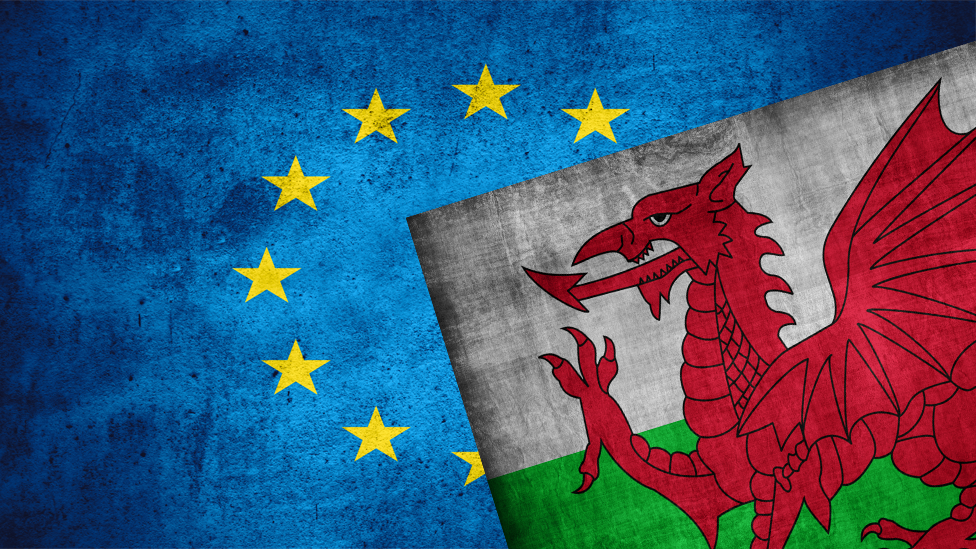Brexit: No evidence of what kind the voters wanted, Carwyn Jones says
- Published
Carwyn Jones: "There's no evidence either way for what people voted for"
There is "no evidence" showing what kind of Brexit people voted for in the EU referendum, according to the first minister.
Carwyn Jones said politicians were interpreting the result "according to their own beliefs."
His comments come after Downing Street insisted that the UK will leave the EU customs union after Brexit.
The Welsh Government backs the customs union along with "full and unfettered access" to the single market.
Mr Jones was giving evidence to MPs on the Commons Public Administration and Constitutional Affairs Committee, visiting Cardiff on Monday to hear Welsh views on Brexit.
He said the 2016 referendum "asked people to vote for a concept, and people have interpreted that result according to their own beliefs".
"Some will argue that it's a vote to leave the Customs Union, for a 'hard Brexit' - others disagree.
"There's no evidence either way for what people voted for - how do you interpret a vote for a concept in a way that you believe will get the support of most of the public? 'Discuss'.
"Nobody can possibly know the answer to that question."
'Tread carefully'
After publishing a paper on future trade on Friday, the first minister said he was "not a believer in free trade agreements being the panacea for everything."
"I don't believe that it's possible to have a free trade agreement that works unless we have an agreement with our closest most important market," he said.
"I would be more than happy to see free trade relationships with other countries that didn't adversely affect the economies of Wales or the UK.
"People talk of India and China - tread carefully, because of the great difference in income levels," Mr Jones warned.
"A free trade agreement with China that allowed the flow of Chinese steel into Wales would destroy the Welsh steel industry."
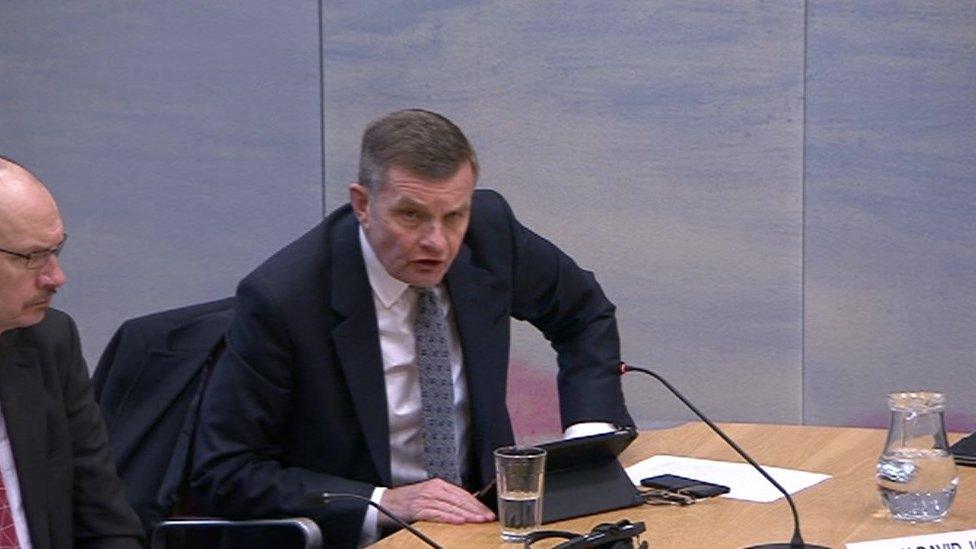
David Jones asked if Welsh ministers were set on a "collision course" with the UK government
The first minister repeated his call for the Welsh government to have a seat at the table when the UK is negotiating trade deals but said he did not believe "we should have a veto on trade deals."
Engagement with the prime minister had "got worse" but he said there were "no tensions" within the Labour party, even if there were "different viewpoints".
"My view is we should be in the customs union and full and unfettered access to the single market," Mr Jones said.
"You can debate whether you can be a member of a market or not - I don't think it matters. If you're a business all you want to know is that you can export without a barrier."
Asked about the so-called continuity bill that his government is threatening to introduce in the assembly to protect Welsh interests post-Brexit, Carwyn Jones said he wanted to get to a position "where that is avoided".
Former Welsh Secretary and ex-Brexit Minister David Jones MP asked: "Do you anticipate that such a bill would put you on a collision course constitutionally with the British government?"
The first minister replied: "Collision course, I think, is a strong phrase. It would certainly put us in a different position, but then we are already."
Cabinet Office Minister David Lidington said on Thursday that talks in Cardiff aimed at allaying Welsh fears over the UK government's EU (Withdrawal) Bill had taken "some steps further forward".
The Welsh Government's priority is to seek changes to the bill as it passes through the Houses of Parliament, saying a continuity bill of its own would be a last resort.
- Published5 February 2018
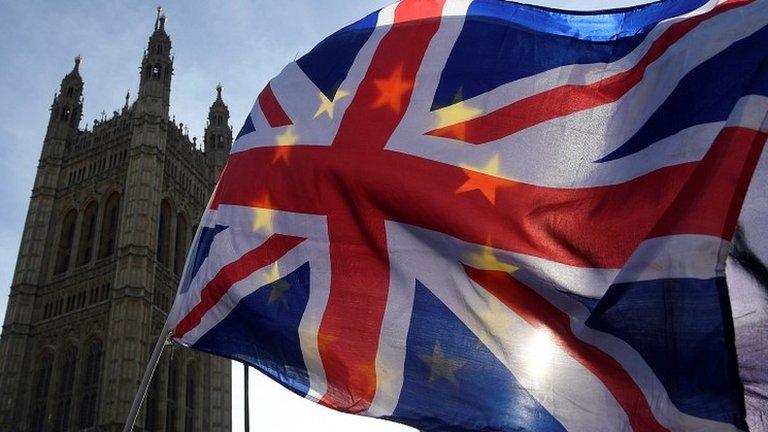
- Published14 August 2017
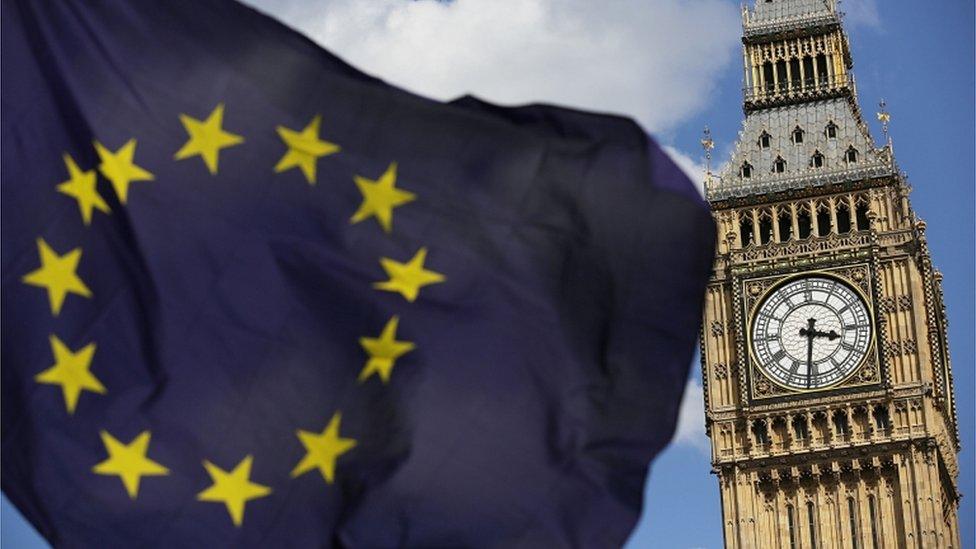
- Published5 February 2018
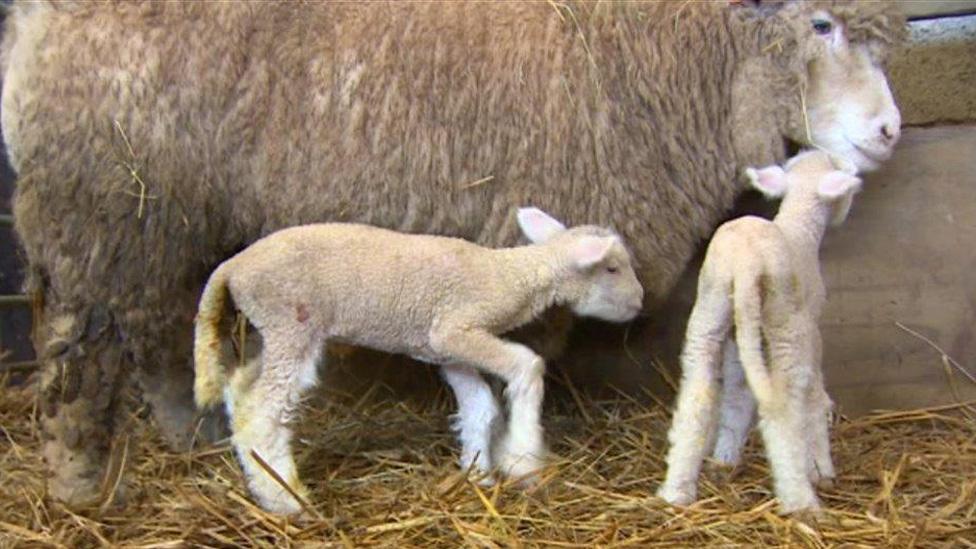
- Published4 February 2018
